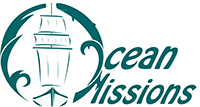Our goal is to understand how plastic pollution impacts Icelandic coastal landscapes and the sea life in Icelandic waters. Micro plastic has been found almost everywhere worldwide and yet we know little about how it can affect life on Earth, including humans. Even if the Arctic is hostile and far from human activities, plastics travel on ocean currents and through the air to the far north and accumulate—sometimes inside the animals that live here. Recent studies find higher concentrations of microplastics in sea ice in these remote, high-latitude hotspots than in the five infamous ocean garbage patches, and a recent report finds airborne microplastics are falling on the far north mixed with snow. According to research done by the marine biotechnology company BioPol, located in Skagaströnd, Northwest Iceland, from 160 to 230 tons of microplastics are annually carried into the ocean around the country. Most of the microplastics found came from car tires
Yet, this is the first time that micro plastic analyses have been carried-out at sea in Iceland. The data collected during OM expeditions (so far) indicate most of the particles (>1mm) that we caught in our manta trawl are coming from fishing gear. These preliminary finding suggest that fishing activities could be as well an important source of micro plastic pollution into the marine environment. This may increase the risk of ingestion by sea life on important feeding grounds for fish and whales as well as in nesting areas for sea birds. The results also indicate that the area in the North east closer to Húsavík is the most affected by micro plastics (read report).

